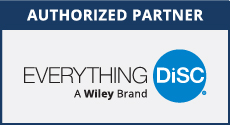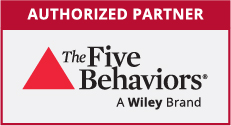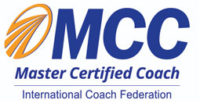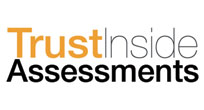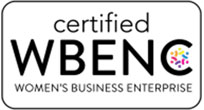People Whispering Tip:
I’m getting tired of reading articles that start with the catch-all phrases “in today’s tough economy,” or “in these challenging times,” etc. I brace myself for another round of bad news or ways in which I will be cautioned to be fearful and to hunker down to prepare for the worst.
Mind you, I am not suggesting that we all “pour pink paint” over challenging situations and pretend they don’t exist. That would be as silly as talking about wellness and prevention to someone who has just been hit by a speeding car head on and is bleeding and suffering from traumatic injuries. Obviously, wellness and prevention are still relevant but secondary to dealing with the immediate issue at hand. To continue the analogy though, too many people, once they stop the bleeding so to speak, go right back to their old ways and don’t stay in shape and current with what they need to do to thrive in today’s “new” world of work. I put “new” in quotes as these trends have been developing since the 1980’s and it seems that many are just now waking up to their realities. It’s often a question of timing, common sense, and being empowered with the information it takes to be in tune with the changes in today’s world.
The focus of this article is what you can do from a career management perspective in order to recession-proof your career. It’s also a question of getting back to principles which are universal immutable truths. It is easy to argue that this domino effect of sub-prime mortgages, tumbling stock prices, job losses, and tightening credit were the result of greed and irrationality. These events highlight poor decision-making, poor risk analysis, and the interconnectedness of our global economy.
Very simplistically, when the US housing market began its freefall in 2007, the mounting delinquencies and foreclosures pressured banks to sell or revalue the mortgage pools on their balance sheets. In doing so, they eroded their capital, limiting their ability to lend. As a result, banks had to withdraw credit lines and borrowers had to sell assets to pay back loans taking large losses as asset prices declined. Banks had to further tighten credit causing foreclosures and delinquencies to rise depressing consumer demand which in turn squeezed business earnings resulting in businesses having to cut expenses and jobs.
While I have an MBA and study economics and investing enough to be reasonably well-informed, what I am an expert in is the job market from a career management as well as a talent management perspective. From personal experience working with thousands of clients over the years, I can’t emphasize enough the importance of educating yourself about the “new” employment contract and working with a more fluid, boundary-less mindset. In the spirit of education and awareness, I’d like to invite my readers to a complimentary virtual event/webinar my associate/colleague and I are conducting Tuesday Sept. 1st at 9 PM Eastern. Register now at www.recession-proofyourcareer.com regardless of whether you can attend live or not.
If you’ve been laid-off or outsourced more than once due to mergers or acquisitions or the economy, this call is for you. If you’ve found yourself in a dead-end job that doesn’t utilize your skills and talents or are in an organizational culture that doesn’t match your style, this call is for you. If you are uncertain as to how best to market yourself and find work that is right for you, this is for you. If none of that applies to you, feel free to pass this information along to a friend or colleague of yours who might benefit. “The 7 Costliest Myths About Today’s Job Market” we will address are:
1. Nobody is hiring! There truly are opportunities abounding in this market if you know where to look, how to look, and how to “market” yourself. We will address this in the webinar and in an in-depth series to follow.
2. It’s all about my skills and experience. Competency is expected and your background and skills do matter. But it is even more important to be able to demonstrate what you can do in the future for a potential employer or client for that matter. The principles are the same regardless.
3. All I have to do is be myself in the job search process. First impressions matter whether you are networking, interviewing, or just casually exploring your options in information-gathering meetings. We’ll address the importance of adapting to the person with whom you are interacting in order to put your best foot forward.
4. I can’t change industries at this point. Many people can and do change industries multiple times throughout their career. It’s a question of knowing your transferrable skills and being able to assess and understand an industry quickly by understanding its strategic drivers, its competition, its future prospects and so on. We’ll touch on how and share stories of those who have successfully transitioned into new industries for inspiration.
5. The internet is the first and only place to find a job. Today the internet is an important tool in a job search as well as in bidding for contract or consulting opportunities or for attracting opportunities for small business. That said, the hidden job market is still the best way to land an opportunity that will be a good match. Learn the hidden job market’s secrets.
6. Only “lucky” people have careers they are passionate about. This is just not true. It is true that everything has its grunt work and less fun aspects. But even in “rough” times, those who succeed let their energy and passion and belief in what they do shine through. This is what positively influences the people they impact even more than what they do.
7. Once I have a job, I can coast! Sadly, this erroneous belief is why so many people are shell-shocked and take longer than necessary to land another viable opportunity. Being well-connected and networked is just as important once you’ve landed a job as it is while you are looking for a job.
DiSC Assessment Application:
When I first started working in the corporate world, my father gave me a little pamphlet entitled “How to Get Along With Your Boss.” Corny as it may have been, understanding that your success in a new job is largely dependent upon developing a good relationship with your new “boss” is yet another timeless, common-sense principle for inspired success.
Since then, I’ve had the pleasure of teaming with best-selling author and Harvard business professor Michael Watkins through the Forum Corporation with a training program based upon his best-selling book “The First 90 Days. ” Dr. Watkins’ premise is simple in that it he postulates that a new leader must develop critical success strategies within a 90 day period in order to establish trust and credibility. The book is rich and well-researched and beyond the scope of this Ezine.
However, one of my favorite tools in the book is learning to negotiate for success by planning for 5 conversations. These conversations are not subjects to be dealt with in separate conversations but are intertwined threads of an ongoing dialogue. The most relevant to DiSC and the family of Inscape assessments is the style conversation. Everything DiSC Workplace (see my store at www.lauraadavis.com) allows you to understand your style better in terms of how you learn, communicate, influence others and make decisions.
I’ve written about the importance of understanding oneself and your impact on others many times so I won’t repeat it here. I’ve also written extensively about the importance of adapting to the other person’s style in order to support them and to connect so that you can partner together going forward. What’s new about Everything DiSC Workplace is its Classical Patterns section in addition to the new circumplex model. The Classical Patterns section in this assessment will enable you to know precisely how to interact with others in order to adapt to their needs. It also gives you prescriptive ways to specifically adapt to the person’s nuances of style. In this way it is much more behavioral and useful in practical application.
When style differences arise, it is best to deal with them directly. Otherwise, you run the risk of having your boss or coworker perceive and interpret a style difference as disrespect or even incompetence on your part. In coaching executive women leaders in particular, I encourage them to raise the style issue before it becomes a potential source of irritation with you and your “boss.” Being proactive about how to accommodate both of your styles is the key to short and long-term success in this initial relationship as well as in many others.
For help in “managing up” in a new boss or team situation, call us at (404) 327-6330 or email Laura@lauraadavis.com to find out how to use the Everything DiSC Workplace Profile and Facilitation System to recession-proof your success within your organization.
Transformational Coaching Tip:
Your best bet for thriving and not just surviving in the new world of work is to be agile! Successful leaders develop on the job and learn managerial lessons from day-in and day-out experiences. Some companies invest in their people at the outset, but far too many wait until a crisis is at hand before developing their leaders.
As a coach, trainer/facilitator, and assessment expert, I am often called in when a manager or executive is about to derail. Generally, when someone is about to derail, it’s for one of two reasons. The first is an obvious personality issue or power struggle that an understanding of DiSC and how to use it could have prevented. The second related cause is depending too much upon the competencies that moved them into management in the first place and not learning new skills that are needed to continually perform effectively as a manager. I am continually amazed at the number of corporate managers who are not using any social media tools and aren’t networked inside never mind outside their company for example.
There is a relatively new concept in the management literature called “learning agility” which is increasingly being recognized as essential for long-term success. Learning agility is the ability to learn something in Situation A and apply it in Situation B. It is about forming patterns collected in one context and then using those patterns in a completely new or different context to make sense of something you’ve never seen or done before.
I hear so many Baby Boomers complain about being perceived as too old in the workplace. It’s not about age, it’s about being dated because they are no longer agile. In short, be sure you are continually learning and growing in your field. Stay current with the latest technological trends and learn new skills on an ongoing basis. Invest in yourself for fun and for profit. Don’t RIP or retire in place. Successful managers and executives respond to adversity and diversity by learning new skills and additional ways of thinking on an ongoing basis.


